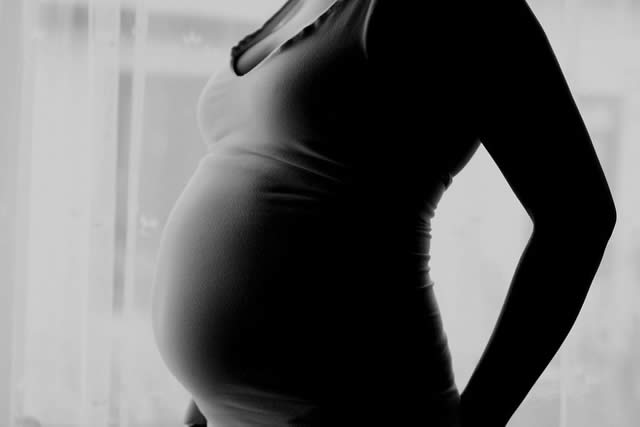Let Zifa run its own affairs
Opinion Saul Gwakuba Ndlovu
Two very important things occurred in Zimbabwe’s sports in the past couple of weeks. One was the reported attachment of the personal property of the Zimbabwe Football Association (Zifa) President Cuthbert Dube, by the Sheriff of the High Court because of a $281,000 debt Zifa owes Pandhari Lodge. Dube is the guarantor of that debt.
The other development was the Caf tournament which ended in the Equatorial Guinea’s capital town, Bata, on 8 February 2015.
The reported attachment of Dube’s personal property occurred at a time when a number of Zifa stakeholders were baying for his removal from the Zifa presidential position because, they say, his leadership has failed the country’s soccer umbrella organisation.
At the time of writing this opinion article, Dube’s property had not been carried away by the sheriff because Dube’s lawyers had applied for a 10-day grace period for him to settle the debt.
It is not the intention of this article’s author to pass opinion on the wisdom or otherwise for Dube to have guaranteed the Zifa loan. As the Zifa president, he knew and he continues to know the financial viability or non-viability of Zifa, and the potential and actual risks involved in guaranteeing its debts.
What is most relevant in this matter is that Zifa is so impecunious that its transactions are guaranteed by an individual, that is assuming that the financial situation on which it is was when the debt was incurred obtains up to now.
Dube’s passionate commitment to Zifa is borne out by this adverse legal measure against his domestic life. Those who are yelling for his departure from Zifa’s top most office would been sobered by this latest development.
In any case, the man was democratically voted into that position. The very same electoral process must be followed to remove or replace him. It would be absurdly illegal to wake up one morning and declare that Cuthbert Dube is no longer the Zifa president.
Those whose responsibilities include the formulation and application of Zimbabwe’s sports would be very well advised to appreciate that Zifa is an affiliate of the Federation of International Football Associations (Fifa) one of whose statutes says that governments should not interfere with the administration of football.
An association in which a government has interfered is suspended forthwith. Its re-admission is utterly and unconditionally on the re-instatement of the personnel, structures or situation prior to the suspension of the national association from Fifa.
The suspended national association is not allowed to have any sports relations with any soccer organisation affiliated to Fifa, and Fifa affiliates are not allowed to have sporting relations with a suspended national soccer association.
Since national soccer associations such as Zifa derive various benefits from Fifa, they will not risk their interests by associating with a suspended national soccer organisation.
So, since Zifa derives more benefits from its Fifa membership or affiliation, than Fifa derives from Zifa, it is most advisable to let Zifa run its affairs constitutionally.
Meanwhile, the cause of all this is lack of funds. And who is supposed to rectify that most unfortunate weakness in most of Zimbabwe’s sports? The government and certainly not the incumbent Zifa President.
Suggestions have been made about the need to procure sponsorship from Zimbabwe’s business community. That has always been the norm. There is really nothing new at all in or with that suggestion. What is relatively new these past few years, however, is that business activity has drastically decreased.
That means a decrease in government tax revenue and a decrease in what the country’s commercial and industrial enterprises can plough back into their respective communities.
This means that sponsorship, notwithstanding sports discipline, must effectively market itself, and operate within its financial ability.
Incidentally, it is most enlightening to quote the Minister of Sports, Arts and Culture, Cde Andrew Langa, when he was asked to dissolve the Zifa board following dismal failure by the Zimbabwe Warriors to qualify for the recent Caf tournament.
Cde Langa said: ‘‘What will such a move achieve? Why should we throw away the baby together with the bath water? We all know how Fifa reacts when a government interferes with the running of football. We will not be pressured into making a decision that will be detrimental to Zimbabwe football.”
The above quotation is from the January 18 to 24, 2015 Sunday News, a Chronicle sister-paper.
The second issue is about Zimbabwe’s Warriors failure to qualify for the recent Caf contest in Equatorial Guinea. We should kick off this discussion by pointing out that in every sport there has to be a winner, which by definition implies that there must also be a loser.
No-one is pleased by losing. A draw is not as satisfactory or as rewarding as a victory of course. The Zimbabwe squad lost in relatively early stages of the tournament. That upset a great many Zimbabwean soccer fans.
Why did Zimbabwe lose that early?
In every sport, practice is the most important preparatory step. We are assuming here that the selection of the athletes would have been done with the utmost professional impartiality and care.
The opinion of the author of this article is that in Zimbabwe ethnicity and plain favouritism greatly influence the selection of the country’s first eleven. Our national team seldom comprises the very best. This is a controversial assertion, of course, but I have always wondered how the goalkeepers of our national soccer team are chosen. Should we not choose the one who has conceded the least number of goals during a most recent or during the current period?
That does not seem to be the criterion in Zimbabwe, even with the selection of other players. A good national soccer team should be made up of the very best players of the entire country.
Zimbabwe stretches from Mutare to Plumtree and from Victoria Falls to Nyamapanda and from Beitbridge to Chirundu. Do the Zifa scouts really cover the whole country to identify both potential and actual soccer talent? That is doubtful.
Are there no suitable soccer players at Binga, Nyanga, Murehwa, Beitbridge, Gwanda, Kwekwe, Kezi, Guruve and/or Mvurwi, Ntabazinduna, Gokwe, Tsholotsho, Marondera, Beatrice and Victoria Falls.
If we honestly want a strong national soccer team, we have to select the players from teams representing the country’s regions as a whole. I have actually seen very good players at Ntabazinduna, Tsholotsho, Plumtree, Victoria Falls and Turk Mine but they have never featured in the national squad. Why?
Another very vital factor that contributes to success in any sport is the practising facilities used by the squad. They should be similar to those used for the competition.
Not only the physical facilities, what we call “hardware” in customer care and service, but the weather (climatic) conditions, the attitude and other atmospheric factors such as humidity must be taken into consideration during practices.
That is what is meant by “acclimatisation,” that is getting the body and the mind to be accustomed to new weather and altitude as well as humidity and other atmospheric characteristics. That is an essential part of the team’s preparatory or practice stage.
It could be of immense help to athletes practising for an event to be held in either Mbabane, Matsapa, Piggs Peak in Swaziland, or in Maseru or Teyateyaneng in Lesotho to practice at Nyanga in Zimbabwe. The altitude and weather characteristics of those places are more or less the same.
Suitable and adequate equipment is another vital requisite for any team to practice and to perform well. The equipment should be of the same size, weight and where possible, brand as that to be used at the actual contest.
Colours of the uniforms, soccer balls and any equipment to be used should be agreed upon by all contestants to the unfair advantage of the other or others.
National sports team members and officials should be adequately remunerated. What they are paid by the state should either be higher than what their rivals are paid, or should be the same, or, if it is less, that should be compensated by an assurance cover that will make the whole project, that is to say from the practice to the competition stage, worthy the athletes risking their lives.
Attractive remuneration and assurance policy cover motivate athletes a great deal. While it is good to talk about patriotism, we must remember that members of national sports teams have personal and family responsibilities to shoulder like everybody else.
The government is constitutionally responsible for most of the expenses incurred by national sports teams, and it is virtually unheard of for a national sports organisation’s official guaranteeing the organisation’s debts.
Lastly, Cote d’Ivoire won the highly prestigious Caf trophy, a well-deserved prize for the profuse sweat and toil of Yaya Toure and his team. Congratulations and praise must be given to the coach, Harve Renard.
Africa’s other nations fell by the wayside as the Caf continental ding-dong soccer contest rolled on. Of special interest in all this, in fact, in virtually all the African continental sports contests are the nations whose populations are below two million.
None of them has ever reached the high stages or levels reached by such countries as Egypt, Nigeria, South Africa, the DRC, Morocco, Tunisia, Ghana, Zimbabwe, Kenya, Uganda, Tanzania, Sudan, the Congo, Gabon, Cote d’Ivoire, Guinea, Mali, Malawi, Mozambique, Libya, Cameroun and Mauritania.
The demographically disadvantaged nations are Botswana, Swaziland, Namibia, Lesotho, the Comoros, Seychelles, Djibouti, Guinea-Bissau, the Gambia, Sierra Leone, Mauritius, Cape Verde Islands and Madagascar.
These countries have relatively small populations from which to select athletes. Can they ever win against much bigger nations? Yet they must compete in every continental sports event.
Saul Gwakuba Ndlovu is a Bulawayo-based retired journalist. He can be contacted on cell 0734328136 or through email [email protected]









Comments